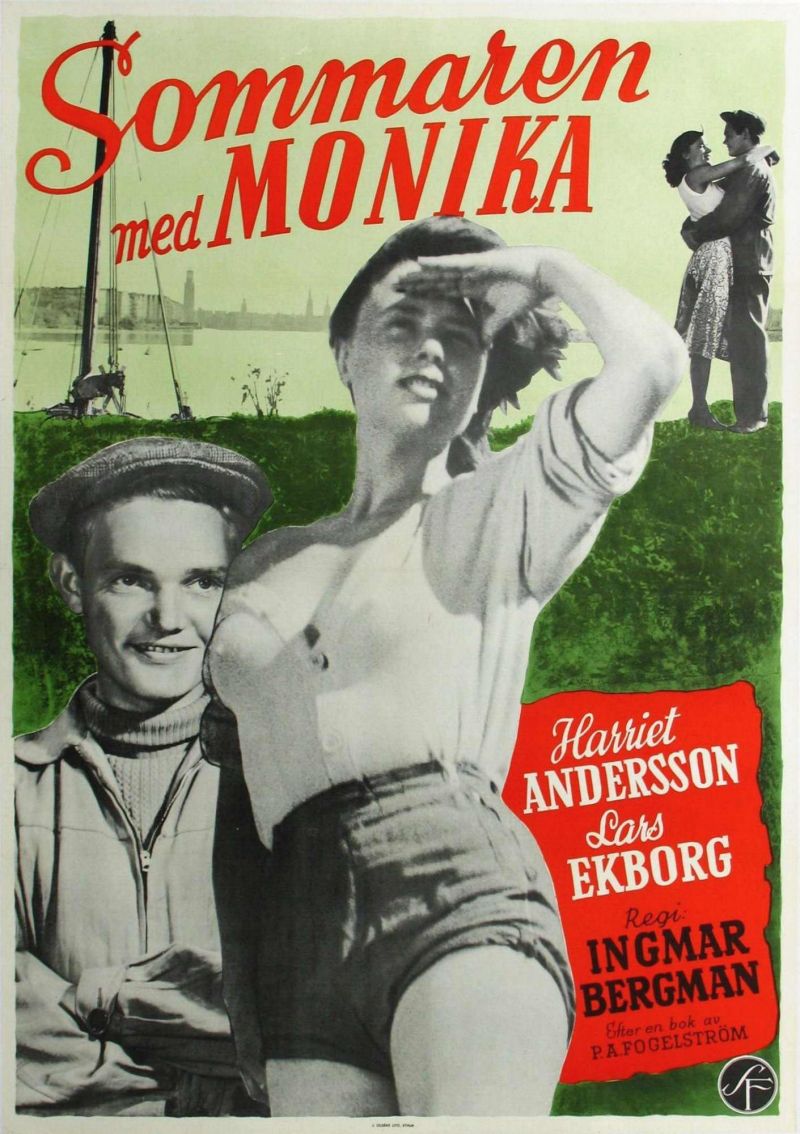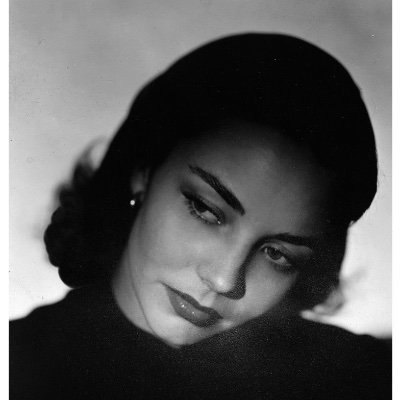
- Starring
- Harriet Andersson, Lars Ekborg, Dagmar Ebbesen
- Writer
- Per Anders Fogelström
- Director
- Ingmar Bergman
- Rating
- R (United States)
- Running Time
- 96 minutes
Overall Score
Rating Summary
Summer with Monika introduced Ingmar Bergman to American audiences as a provocateur who made racy erotic films about randy Swedish youths. During the notoriously buttoned up 1950s, Hollywood filmmakers were constricted by the Hays Code and couldn’t produce films that featured nudity or explicit references to sex. This meant that foreign filmmakers could sell their work to American audiences by flaunting the comparatively loose sexual mores in their countries. France and Sweden became mythical wonderlands filled with bikini wearing babes and angsty university students who could philosophize for hours about the Electra complexes that they suffered from. All of this must have seemed terribly new and exciting to American audiences of the 1950s. One can only imagine the thrill of being a young cinephile, sitting alone in a darkened cinema and seeing something that was titillating and dangerous, yet defensible as a piece of high art.
As a modern audience member, one can only imagine how special Summer with Monika would have seemed in 1953. Now there are hundreds of coming of age movies that explore the burgeoning sexuality of two young people who are at a crossroads in their lives. Bergman did choose to tell a remarkably simple story here and it will be familiar to anybody who has ever read the first few chapters of a picaresque epic. He sets this tale in 1950s Stockholm and reflects the world through the eyes of the working class Harry (Ekborg), who falls in love with the sexy, vivacious Monika (Anderson). She convinces him to run off to the Stockholm archipelago for the summer, in order to escape all of their responsibilities. For a time, they are very happy together, but they eventually have to face the responsibilities that come with adulthood.
This is one of his works where you are meant to appreciate the modest quality of the storytelling. He would decide to engage in more experiments with form and structure with his later films, but it feels like he was just trying to push out a conventional, formulaic piece of entertainment here. It was striking how this film didn’t feel too different from American films that were made during this time. Something a bit more radical and experimental from a filmmaker who was known for pushing boundaries seemed more likely. Summer with Monika seems to revel in returning to themes that have frequently been explored in literature. Of course, there’s value in trying to bring that sort of literary quality to the screen, It was just hard to ever get in this story.
The film can not be faulted from a technical standpoint. The black and white cinematography was crisp and there were some nicely composed shots, the editing set the right sorrowful tone and the Swedish archipelago looks suitably cold and uninhabitable. Bergman’s films do look good, at least most of the time, and it is easy to be seduced by the ‘classy’ appearance of his films. When it comes to arthouse chic, one’s mind probably goes to a Bergman classic, and Gunnar Fischer deserves a lot of credit for producing visuals that are so instantly recognizable. He loves to contrast harsh, rugged landscapes with the smooth, soft flesh of young people. The message becomes clear: the world outside is dangerous and scary and these crazy kids won’t be able to remain young forever. They will inevitably be forced out into the harsh elements (which could represent the challenges they face in the real world) where they end up committing crimes and experiencing the breakdown of their relationship.
However, it’s easy to feel apathetic towards the two main characters and their plight. Their journey is on the predictable side and is never particularly engrossing. Andersson would play emotionally volatile, impulsive women in other Bergman films and this ends up feeling like the warm-up act for Through a Glass Darkly. She is heartbreakingly beautiful, and the camera really loves her, but there’s still a been there, done that feel to her performance. It’s fine but you keep hoping for something a bit more satisfying or thought provoking.
Summer with Monika still has a place among Bergman’s most famous and revered films, so there is still a reason to see it. If one wants to be considered a cinephile, one feels obligated to sit through Bergman’s filmography, even if they don’t find themselves loving his directorial vision. In order to understand what was consider ‘arty’ in the 1950s, viewers have to see something like this. Yes, it feels like doing homework rather than taking in a piece of entertainment, but some will tell you that this is what all cinema should feel like.
still courtesy of Turner Classic Movies
Follow me on Twitter.
If you liked this, please read our other reviews here and don’t forget to follow us on Twitter or Instagram or like us on Facebook.

I am passionate about screwball comedies from the 1930s and certain actresses from the Golden Age of Hollywood. I’ll aim to review new Netflix releases and write features, so expect a lot of romantic comedies and cult favourites.
Discover more from
Subscribe to get the latest posts sent to your email.
